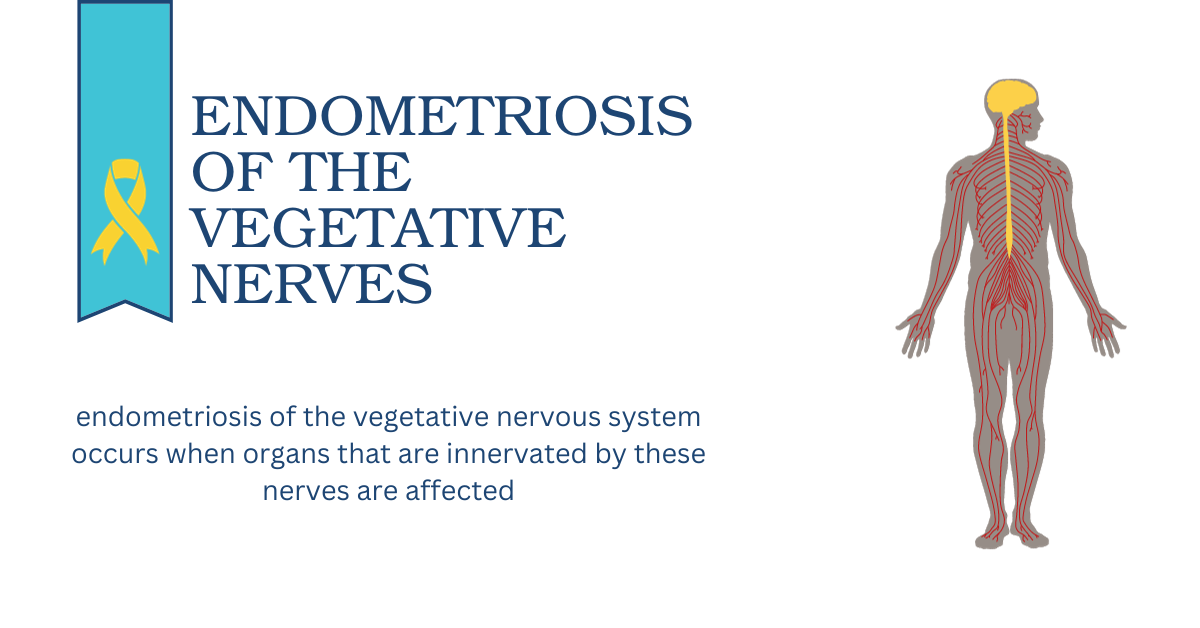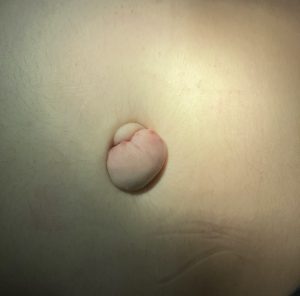Endometriosis of the vegetative pelvic nerves is endometriosis of the nervous system that supplies the internal organs, such as kidney, bladder, intestines, as well as blood vessels, stomach, genitals, lungs, heart, etc. All these organs are innervated, and when they are affected by endometriosis or other health issues, the nerves will become disturbed, causing a variety of symptoms.
Direct nerve involvement of endometriosis is rare. However, when the nervous system is affected, either by irritation or compression it may manifest with neurological symptoms, including pain, muscle weakness, bowel and bladder incontinence, and paraplegia. The nerve involvement may be isolated or can be a result of deep infiltrating pelvic endometriosis direct extension.
When operating on these areas/organs innervated by the autonomic nervous system, it is important to use nerve-sparing technique that will preserve the pelvic autonomic innervation.
Operating on nerves requires specialist training, in order to safely remove the endometriosis lesions without causing organ dysfunction. A radical resection of these nerves can cause damage to the autonomic nervous system of the pelvis resulting in urinary, bowel and sexual dysfunctions.
The autonomic nervous system
The nervous system is divided into central and peripheral nervous systems. The central nervous system contains two organs: the brain and the spinal cord. Everything else is part of the peripheral nervous system. The peripheral nervous system is critical in functions of the body such as movement, sensation, and autonomic processes.
The peripheral nervous system consists of the somatic nervous system and the autonomic nervous system. Vegetative or the autonomic nervous system automatically regulates certain body processes, such as blood pressure and the rate of breathing, without a person’s conscious effort.
The autonomic nervous system has two main divisions:
● Sympathetic – prepares the body for fight or flight situations.
● Parasympathetic- controls body process during ordinary situations.
For example, the sympathetic nervous system contracts pupils, whilst the parasympathetic dilates them. The parasympathetic nervous system contracts the bladder, whilst the sympathetic nervous inhibits bladder contractions.
Endometriosis of the vegetative pelvic nerves symptoms
The pelvis is rich in nerve fibres, the second after the brain. Each of these main nerves is divided further into other small nerves and so on.
The autonomic plexuses comprises: aortic, superior mesenteric, inferior mesenteric, and the superior and inferior hypogastric nerve plexus. The latter is divided into superior hypogastric, and inferior hypogastric.
The splanchnic nerves are bilateral autonomic nerves that supply abdominal and pelvic viscera. The hypogastric nerves and inferior hypogastric plexuses are the most common nerve structures affected by endometriosis.
The pelvic plexus is located in the area of the uterosacral ligaments of the uterus, innervating the bladder, uterus, ovaries, genitals and rectum. These nerves transmit the information received from organs such as the bladder, genitals, and the rectum to the brain, and vice versa. The sympathetic fibres of the inferior hypogastric nerve are joined together with the parasympathetic fibres running from S2, S3, S4 nerve roots. All these nerve fibres then form the inferior hypogastric plexus which transmits innervation to the bladder, uterus and bowel.
Symptoms of the autonomic endometriosis nerves
Given that the autonomic nervous system controls important functions such as digestion, cardiac activity, as well as the sexual organs, endometriosis of the autonomic system can cause visceral pain and autonomic disorders.
To be more specific, when endometriosis irritates or compresses organs that are innervated by the autonomic nervous systems, it will likely cause a disturbance of these nerves that will manifest in various ways, such as:
Urinary tract complaints: pain when urinating, the urgency to urinate, the feeling of having to urinate often, painful urination, urinary incontinence or urinary retention either because the bladder is over or underactive.
Digestive tract complaints: sudden urges to empty the bowel, painful bowel movements, alternation between constipation and diarrhoea.
Upper-body symptoms
- Dizziness or light-headedness due to an excessive decrease in blood pressure when standing, known as orthostatic hypotension.
- Dilation of pupils.
- Nausea or vomiting
- Increased sweating
- Palpitations
- Fatigue, lack of energy
In conclusion, endometriosis of the vegetative nervous system occurs when organs that are innervated by these nerves are affected. This results in a disruption of the autonomic pelvic nervous system causing a variety of symptoms. In surgery, it’s very important to approach these areas carefully and use a nerve sparing technique to avoid urinary, bladder and sexual dysfunctions.




